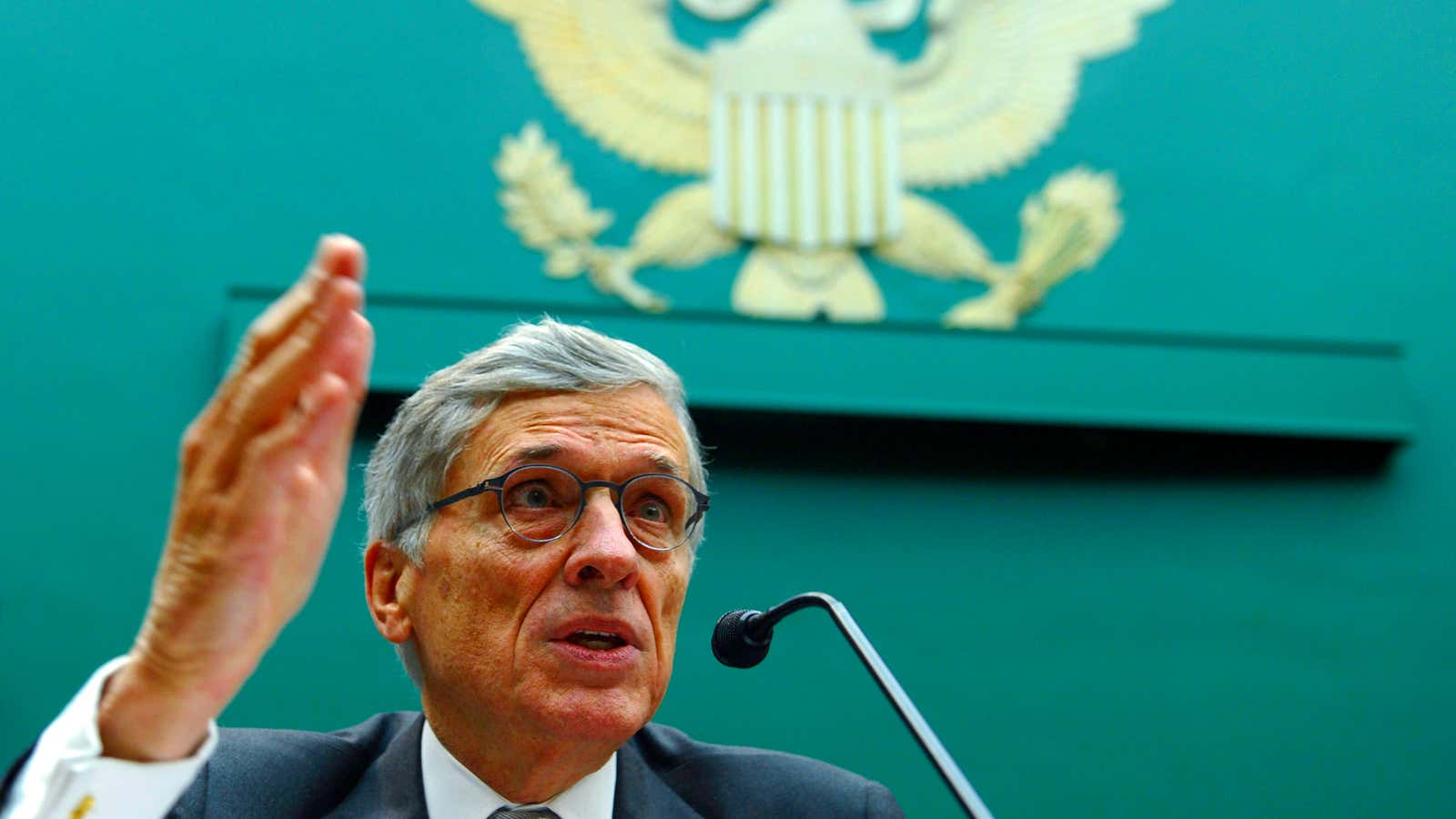We’ve spilled a lot of pixels on Comcast’s proposal to take over Time Warner Cable, and why not? Two huge companies who drive the most important consumer technology, out there uniting in a multi-billion-dollar deal—it’s an exciting and fascinating project.
But my bet is that federal regulators will shut this one down—or change it significantly—before it goes through. And that has more to do with the companies’ broadband business than their TV broadcasting.
Comcast and Time Warner Cable are two of the largest telecoms in the United States, providing television service, broadband internet and landline telephone to millions of people. Telecoms already tend toward monopoly behavior that hurts consumers, which is one reason that the two firms are notorious for being the most disliked in America’s most-disliked industry. And while Comcast will point out correctly that the two companies don’t compete in the same regions of the US, that’s not likely to convince regulators that their merger won’t affect national competition between telecoms.
Regulators will be consulting the basic benchmark of competition: the Herfindahl-Hirschman index (HHI) that New York Magazine’s Kevin Roose helpfully explains. Basically, it’s a mathematical formula for assessing how concentrated an industry is. When the index is above 1,500, the government considers it moderately consolidated; above 2,500, heavily consolidated. (If it hits 10,000, one firm controls the whole industry.)
When Roose runs the two companies’ TV business through the calculation, he finds that industry consolidation increases by 500 points after a merger, to 2,454—almost up to the DOJ’s red line. And that’s after subtracting the 3 million customers Comcast has offered to give up in exchange for regulatory approval.
But look instead at the two companies’ broadband internet business—the real value in this merger, given the troubles with pay-TV. In mid-2013, the Leichtman Research Group found cable companies were taking a serious lead in broadband subscribers over telephone companies, with Comcast and Time Warner on top with 24% and 13% of market share, respectively. The HHI of the national broadband market, roughly calculated, is 1,455, below the “moderately consolidated” benchmark. Merge Time Warner and Comcast, however, and the HHI goes up 675 points to 2,130. In 19 of the 20 largest US cities, businesses looking for high-speed internet would have one option: Time Warner-Comcast. That’s a relatively young industry going from competitive to fairly consolidated in one fell swoop—and a blinking red warning light on the merger.
Comcast’s lawyers have created the wiggle room to make their case and as a company, it is awfully good at that sort of thing. Its top lobbyist, David Cohen, is influential within the Obama administration. The company smartly offered a list of concessions (paywall) right out the gate, but people familiar with telecom regulation expect larger changes if approval is eventually given.
There is also a good deal of skepticism of new Federal Communications Commission Chair Tom Wheeler’s consumer bona fides; after all, he previously worked as a lobbyist for the cable industry. That may mean he’s inclined to be kind to his former colleagues, but it also means that there’s plenty of political pressure for him to prove his doubters wrong. Wheeler and the Obama administration at large are already dogged by questions over whether they’re enforcing the neutral treatment of content by broadband providers. And, with all this, don’t forget that the Department of Justice has an independent ability to block mergers, and has shown itself fairly willing to do so, putting the kibosh on a tie-up between AT&T and T-Mobile in 2011.
For one more sign that the writing is on the wall, consider that Comcast won’t have to pay a break-up fee to Time Warner if the deal fails. It’s unusual for a deal of this magnitude to lack such insurance, which the orchestrators say is a sign of confidence. But a simpler explanation may be that they fear the deal will fail, and don’t want to be on the hook for the loss.
